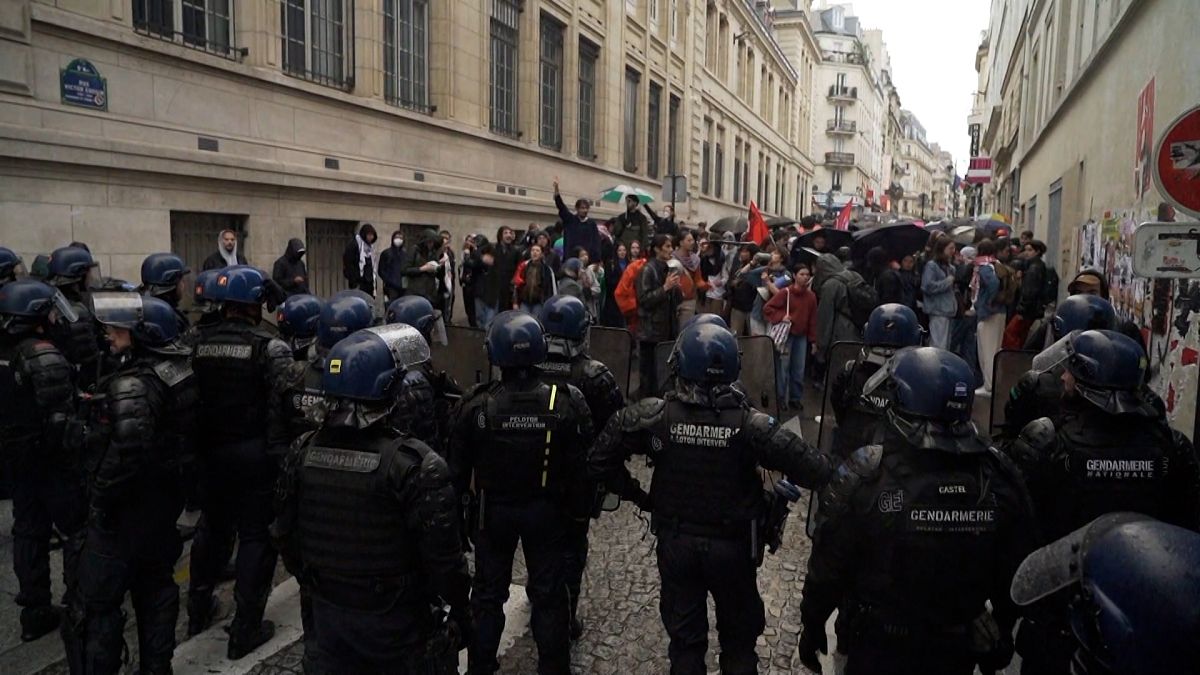In response to student protests over the Gaza crisis, Sciences Po University in central Paris has decided to keep its buildings closed and urged employees to work remotely. The protests, including a peaceful sit-in and hunger strikes by six individuals, were organized by a committee of pro-Palestinian students in solidarity with Gaza victims. These demonstrations reflect tensions within France, where anti-Semitic sentiments have been denounced by right-wing politicians.
Sciences Po, known as France’s leading political science institution with notable alumni like President Emmanuel Macron, has seen student demonstrations reminiscent of those at top US universities. The protests highlight the complex relationship between France, which has the largest Jewish population outside Israel and the United States, and the continent’s largest Muslim community. Valerie Pécresse, the right-wing president of the Paris region, suspended funding to the university earlier in the week, condemning the alleged anti-Semitic sentiments expressed by a minority of radicalized individuals.
The hunger strikes initiated by the pro-Palestinian student committee, led by a member named Hicham, are an effort to pressure the university board to investigate its connections with Israeli academic institutions. The students are determined to continue their protest until their demands are met, highlighting the importance of addressing sensitive issues related to global conflicts within academic settings. It remains to be seen how Sciences Po will respond to these demands and navigate the complex political landscape surrounding the Gaza crisis.
The demonstrations at Sciences Po reflect a broader trend of student activism and political engagement on university campuses around the world. In an era of heightened awareness of social justice issues, students are increasingly using their voices to advocate for change and bring attention to global conflicts like the one in Gaza. The hunger strikes and sit-ins at Sciences Po underscore the importance of creating spaces for dialogue and debate on contentious issues, even in academic institutions with prestigious reputations like Sciences Po.
As Sciences Po grapples with the aftermath of the student protests and hunger strikes, it is essential for the university to engage in thoughtful reflection and dialogue with all stakeholders. Addressing the concerns raised by the pro-Palestinian student committee, while also ensuring the safety and well-being of all students and staff, will be a delicate balancing act for the university’s management. By navigating these challenging conversations with sensitivity and inclusivity, Sciences Po can demonstrate its commitment to fostering a diverse and inclusive academic environment for all members of its community.
In conclusion, the protests at Sciences Po over the Gaza crisis highlight the complex intersection of politics, academia, and social justice issues in today’s world. By engaging in dialogue and constructive debate, universities like Sciences Po have the opportunity to address the diverse perspectives and experiences of their students while upholding principles of academic freedom and integrity. As the situation continues to unfold, it is crucial for all parties involved to approach these discussions with empathy, respect, and a commitment to finding solutions that promote understanding and mutual respect among all members of the university community.











